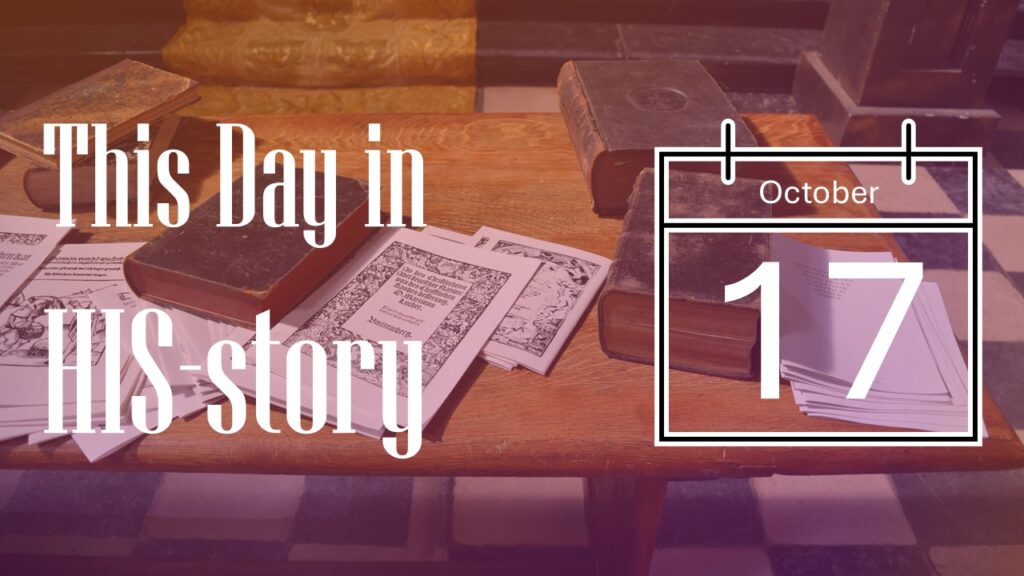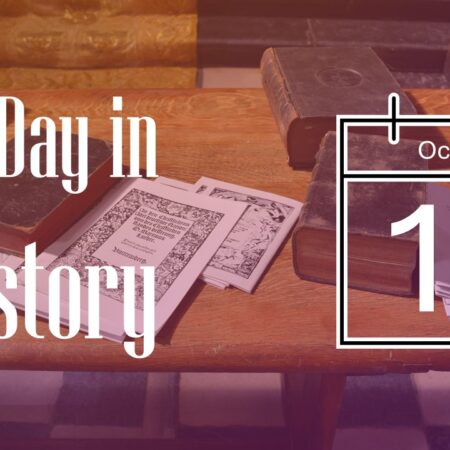
1760
TO OUTWARD APPEARANCES, John Fletcher was a godly young man. From his childhood days in Switzerland, he had been attentive to God’s word and tender of conscience. He had even won an award from his professors for an essay on godliness. Yet, when he was old enough to choose a profession, he felt he was unworthy to enter the ministry. A bold and vigorous youth, he determined to become a soldier. Twice his ambition was thwarted: the first time because he was badly scalded in an accident, the second because peace was made.

Disappointed, he traveled to England to improve his knowledge of English and to see if he could find work. He did both, acquiring excellent English and becoming tutor to the sons of Thomas Hill, member of Parliament from Tern Hall, Shropshire. He also became aware of a deep spiritual unease in himself.
At eighteen, Fletcher had awakened from a nightmare in which he dreamed he was damned. That set him searching for a deeper faith. Now a poor but godly Englishwoman made him aware his Christianity lacked something. Through months of despair, lighted by flashes of hope, he prayed for assurance of God’s pardon. He joined the Methodists and became even more aware of his spiritual deficiencies. Trying to become righteous on his own, he found that every time he reached a goal, his object was just as distant as before. Ascetic practices undermined his health.
Head knowledge of Christ was not enough for him. He wanted heart conviction. At last he found peace in trusting and obeying Christ. Soon afterward, he committed to becoming a Christian minister, took holy orders, and began preaching when opportunities opened. Usually a church invited him to speak only once because his fervent, biblical preaching did not sit well with complaisant churchgoers.
Mr. Hill respected him, however. Hill’s sons had outgrown tutoring, so he offered Fletcher the living at Dunham, Cheshire. “The parish,” he said, “is small, the duty light, the income good, and it is situated in a fine, healthy, sporting country.”
Fletcher replied that too much money and too little work would not suit him.
“Few clergymen make such objections,” said Mr. Hill. “What shall we do? Would you like Madeley?”
“That, Sir, would be the very place for me.”
Hill had no difficulty persuading Madeley’s vicar to exchange it for Dunham, which paid twice as much and did not have the bad reputation of Madeley. On this day, 17 October 1760, John Fletcher was inducted into the Vicarage of Madeley.
His efforts to win its souls for Christ were remarkable and effective. Fletcher literally chased down sinners to share the gospel with them. Real regeneration—new birth, new creation—was needed, he insisted. Gradually his preaching bore fruit as did the Sunday school he set up. He also wrote many books in such clear English that few readers would have guessed it was his second language.
Fletcher remained at Madeley for thirty years. Late in life he married a woman of equal conviction with his own. Mary Bosanquet would preach up to five times a week. She insisted that some women “are called to entreat sinners to come to Jesus,” and “woe be to them if they obey it not.”
Designated to be John Wesley’s successor, Fletcher preceded him in death in 1785.
1895
“Will you seek a life of self-glory and applause in the entertainment world, or will you dedicate your life to My service?” Standing on the steps of the opera house, Peter Cameron Scott heard the voice as clearly as if God had taken a man’s form.
In that moment, he made a fateful decision. He would obey God. His decision laid him in a grave in Africa at the age of twenty-nine. By then he had already buried his brother John, all alone in Africa. Was it worth it?
Peter was born in Scotland (where he once attended a Dwight L. Moody evangelistic meeting and was deeply moved by the singing). His family moved to Pennsylvania when he was a young man. Christians, they refused to allow him to enter the field of opera. Instead, at twenty-two, he joined the Christian Alliance Training Institute in New York. This was one of the works founded by A. B. Simpson, which became part of the Christian and Missionary Alliance.

Peter was too impatient to finish the course. Africans were dying without knowledge of Christ. He gathered seven eager young men and they sailed for the Congo. Peter’s brother soon joined him. Before many months, with his own hands, Peter buried him. John had contracted one of the dreaded diseases of the Congo.
It was evident to Peter that he would have to leave Africa himself or die, he was so sick with malaria. He went to England to recover. There he read about the mission work of others. Weak and depressed, he did not see how he could return to Africa. Kneeling before the tomb of David Livingstone in Westminster Abbey, he read these words:
Other sheep I have which are not of this fold; them also I must bring.
He rose with renewed determination and hope. He returned to America and founded the Africa Inland Mission. When he went back to Africa, it was with a new team. On this day, October 17, 1895, the men landed at Mombasa, Kenya. Peter did not know it, but he had less than fourteen months left to live.
He pressed inland to plant missions and share the gospel. His efforts were heroic. However, few Africans turned to Christ. Peter contracted deadly blackwater fever. He died on December 8, 1896.
After his death, his teammates also died one by one. Others came to replace them, some carrying their supplies in coffins! Such dedication eventually opened the hearts of the Africans. In time, several African nations became largely Christian. Kenya is one of those. With less than 1% Christians in 1900, it is 79% Christian today. Peter Cameron Scott helped plant the seeds for that church growth.
